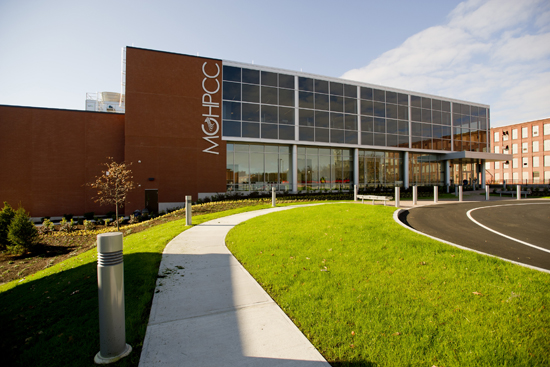Joins five Mass. universities in partnership
Gaurav Khanna, a professor of psychics and director of research computing, helped URI in its effort to partner with five universities in Massachusetts for the Massachusetts Green High-Performance Computing Center. PHOTO CREDIT: bu.edu
The University of Rhode Island joined the Massachusetts Green High-Performance Computing Center (MGHPCC) this November to collaborate with Massachusetts universities and invest in high-performance computing hardware.
Starting approximately 10 years ago, Harvard University, Boston University, Northeastern University, the University of Massachusetts and the Massachusetts Institute of Technology decided to share one high-performance computing center in order to decrease costs for participating schools while also encouraging collaborative projects. Shortly after these conversations, the MGHPCC was built in 2012 in Holyoke, Massachusetts.
“It also facilitates collaboration between different research groups across these different campuses,” said Gaurav Khanna, the director of research computing and assistant professor of physics at URI. “There have been several joint funding proposals that have emerged, lots of joint research that has resulted because of the fact that we’re sharing this resource together.”
Khanna joined URI with the intent of helping the University join the MGHPCC after the University conducted a nearly two-year search to transform its research computing efforts.
After months of collaboration, Khanna said that URI has officially been integrated into the MGHPCC with their own space in the last month as a platform for collaborative research and projects involving everything from quantum computing to artificial intelligence this past month.
A wide variety of sciences are represented within the computing center, according to Khanna, as the universities continue to collaborate on topics ranging from genomics to climate change. According to the MGHPCC website, millions of virtual experiments are housed within the computing center every month in various projects.
Assistant computer science and statistics professor Noah Daniels said that the MGHPCC can have a major impact on the efficiency and effective nature of a current oceanography-related study that can help Rhode Islanders understand their ecosystem.
“We have the oceanographers studying Narragansett Bay and wanting [to study] the microbiome of oysters and looking at the health of oysters and how it relates to the collection of microbes that make up their microbiome,” Daniels said. “And that involves tremendous bioinformatics computations.”
On a larger scale, Chief Information Officer of Information Technology Services Karlis Kaugars said that the MGHPCC partnership helps with the second step of a Cyberteam to Advance Research and Education in Eastern Regional Schools (CAREERS) CyberTeam initiative where resources allow people to work on the same computing equipment while engaging in the same problems.
Kaugars said that supercomputing has been involved in climate research for decades and one grand challenge that can be addressed with computing centers involves Rhode Island’s “blue economy.”
“We’ve talked a lot about the blue economy in the state of Rhode Island,” Kaugars said. “How to maintain sustainable fisheries in an era of sea-level rise, of changing ocean temperature gradients, of changing ocean ecology is one of those big grand challenge problems that we need to work with people up and down the eastern seaboard to solve.”
Khanna hopes that further collaborative projects and other benefits will come to URI as part of this new exploration of the MGHPCC with URI.
“I would hope that the entire campus is able to benefit from an intellectual capacity [that this] center represents,” Khanna said.
Khanna also serves as the mentor for the CAREERS CyberTeam Program. CAREERS is a three-year National Science Foundation-funded program that attempts to build research computing facilitators in universities in Rhode Island, Connecticut and other northeastern states that started in July 2020.
URI physics professor Robert Coyne worked to help with the first CAREERS CyberTeam project entitled “An optimized search algorithm for gravitational waves from post-merger remnants.” In this project, senior physics student Christopher Nadeau learned from the MGHPCC community for an approximately six-month student program starting in February alongside project mentors Coyne and Khanna.
“He found a student in the department who had some exposure to computing, but really wanted to learn more,” Khanna said. “So what we did in CyberTeam, this is what we routinely do, is we fund the student on an internship-like program and the student basically learns from a wider community, which is basically coming from the MGHPCC, on what are the tools that are needed.”
Beyond the collaboration projects, Daniels said that the Computing Center offers an efficient and cost-effective way for dataset investigators to research through collaboration. Daniels’ main research goal is to design algorithms for high-performance computers that can be done on laptops.
“I want people to be able to access those datasets and download them,” Daniels said. “And so having a resource where we can make large files available, either to the public or for archive purposes, is really useful to me.”

